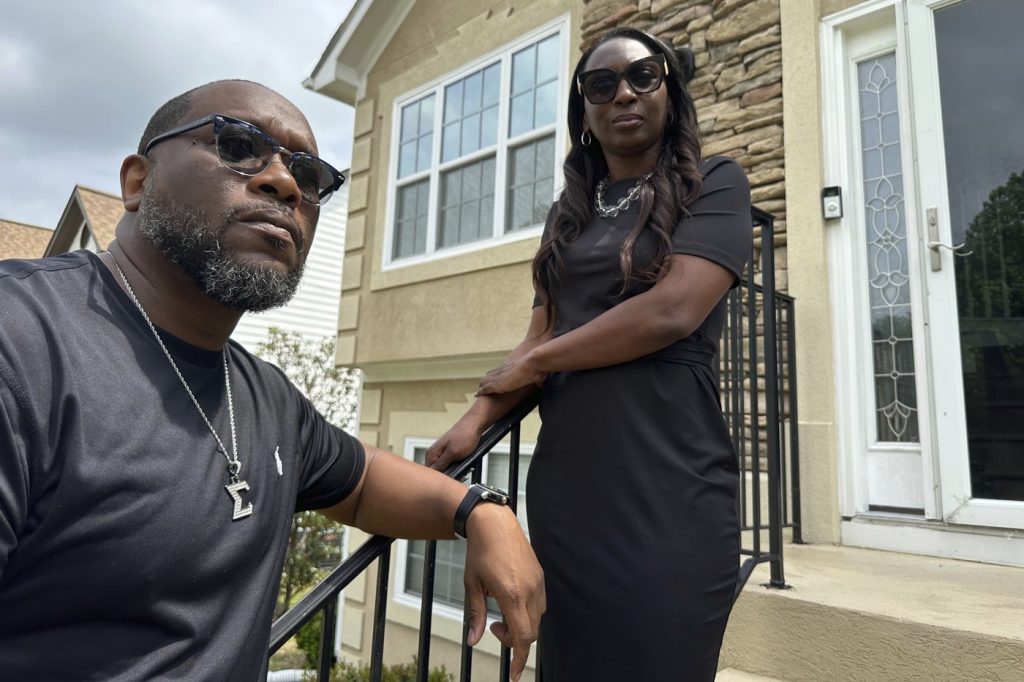On October 18, 2017, before dawn, FBI agents executed a raid on the home of Trina Martin in Atlanta, Georgia. Under the alarming circumstances, agents broke down the front door, stormed into her bedroom, and pointed guns at Martin and her then-boyfriend, Toi Cliatt, while her 7-year-old son cried for his mother from another room. Martin was unable to comfort her child as the agents mistakenly targeted the wrong residence. The ordeal, which felt interminable to Martin, ended within minutes when the agents realized they had made a critical error.
On Tuesday, an attorney representing Martin will present her case before the U.S. Supreme Court, seeking to reinstate a lawsuit she filed in 2019 against the federal government for assault and battery, false arrest, and other violations. A federal judge in Atlanta dismissed the lawsuit in 2022, a decision upheld by the 11th U.S. Circuit Court of Appeals the following year. In January, the Supreme Court agreed to review the matter, which centers around the legal framework enabling individuals to sue the federal government for law enforcement misconduct.
Martin's lawyers argue that Congress explicitly allowed such lawsuits to proceed in 1974, particularly following highly publicized incidents of law enforcement mistakenly raiding incorrect residences. Blocking these lawsuits would, according to Martin's attorneys, diminish the legal options for victims of similar situations. Meanwhile, FBI Atlanta spokesperson Tony Thomas noted that the agency cannot comment on ongoing litigation. The government's legal representatives contend that courts should not "second-guess" law enforcement officers who make "honest mistakes" during operations. The Justice Department has indicated that the agents had conducted prior reconnaissance and believed they were at the correct address, distinguishing this incident from the no-knock, warrantless raids that prompted legislative action in the 1970s.
The 11th Circuit Court's dismissal of Martin's case was rooted in the notion that courts are not positioned to second-guess the decisions made by police officers in situations where they make honest errors. The lead agent attributed the mistaken raid to an error with his personal GPS, as the FBI was targeting a suspected gang member located just a few houses away from Martin's home.
Following the traumatic incident, which deeply affected Martin, Cliatt, and her son, the family has experienced lasting emotional turmoil. Martin, now 46, expressed that the emotional scars from the raid are permanent. "Mentally, you can suppress it, but you can’t really get over it," she stated while reflecting on the impact on her family. She shared how the experience prevented her from coaching track due to the overwhelming reminder of the flashbang grenade that was deployed during the raid. Cliatt, 54, also reported difficulties, saying he could not continue his truck driving job due to insomnia resulting from the trauma.
Martin described her son’s response, indicating that he became extremely anxious following the incident. She recounted how Cliatt initially thought the raid was a burglary, leading him to grab a shotgun in a desperate attempt to protect the family. Martin’s son is still haunted by the fear that she might have been killed had she confronted the armed agents. Her legal team insists that if the Federal Tort Claims Act offers a cause of action for any scenario, it should encompass the circumstances of this mistaken raid conducted by the FBI.
The case is particularly significant as it highlights discrepancies in how various U.S. appeals courts interpret the law concerning mistaken law enforcement raids, resulting in conflicting legal standards. Martin’s lawyers argue that only the Supreme Court can resolve these inconsistencies. Public-interest organizations from across the political spectrum have joined the call for the Supreme Court to overturn the previous ruling from the 11th Circuit.
During the botched raid, a member of the FBI's SWAT team removed Cliatt from the closet while he was handcuffed, but agents soon recognized their mistake when they noted that his tattoos did not match those of the suspect they were pursuing. Consequently, they uncuffed Cliatt and exited to arrest the actual target at the correct location. Following the incident, the leading agent returned to apologize and left behind a business card with a supervisor’s name, but the family received no compensation for the damage caused during the raid.
Martin poignantly reflected on the most distressing aspect of the raid being her son’s frightened cries, stating, "When you’re not able to protect your child or at least fight to protect your child, that’s a feeling that no parent ever wants to feel.”










